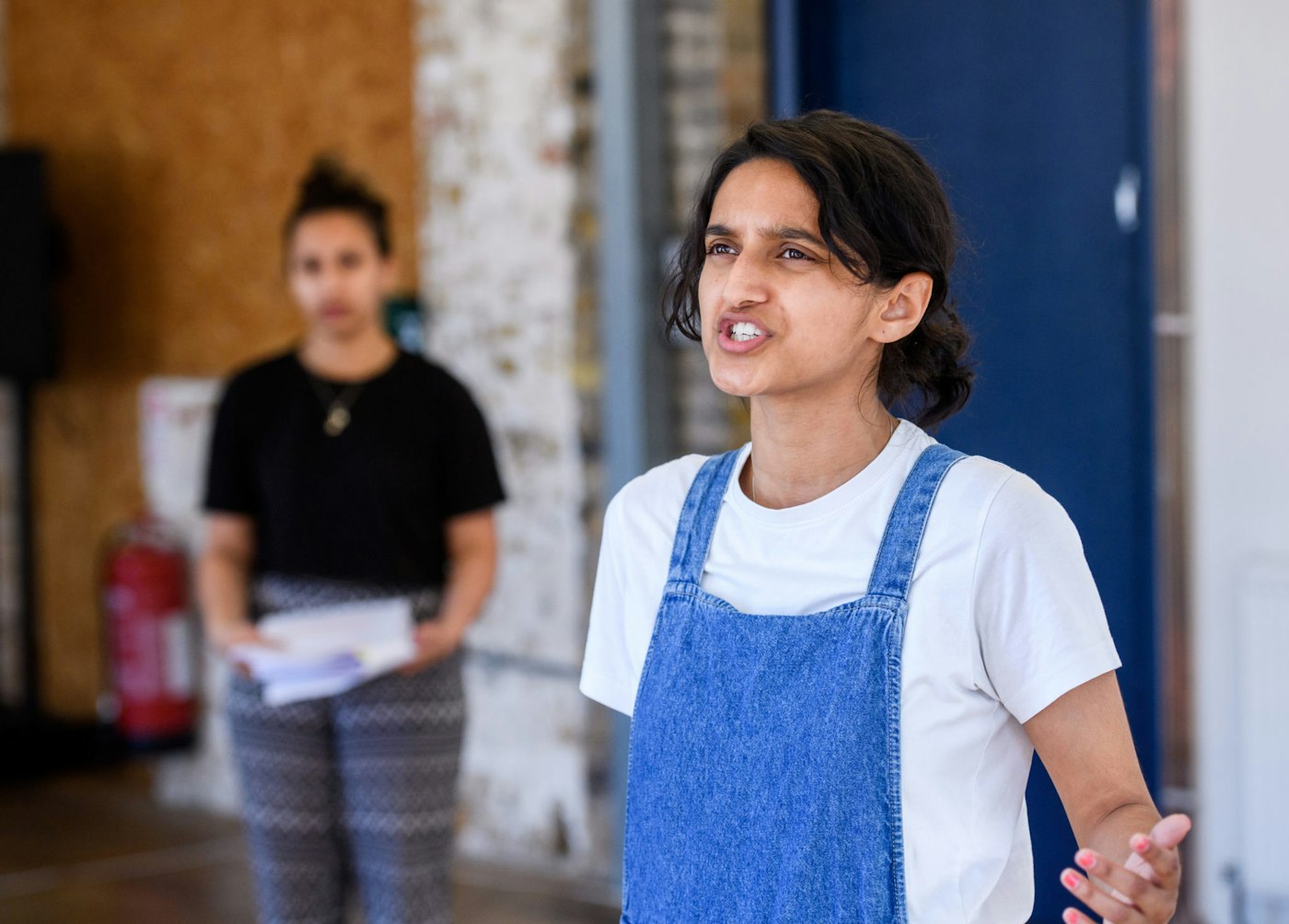Theatre Review: Spun – A Snippet of a Minority’s Experience, Unknown to the Majority
by Isra Iris in Culture & Lifestyle on 2nd November, 2018

Rushing into the Arcola Theatre in Dalston, assuming I could just sneak into the back of the theatre unnoticed, I was overwhelmed by the stage’s proximity to the audience. Only two rows of spectators separated me from the stage. I knew I was in for an intimate journey.
The minimalistic stage drew my full focus to the only two characters; reminding me of Samuel Beckett’s Waiting for Godot except Safa and Aisha were not waiting. The two British Pakistani friends from Newham, East London, were trying to forge their separate paths in the real world after university. Safa launching her career in the corporate sphere with a ‘yes’ attitude, eager to please her manager while Aisha working in a school as a teacher’s assistant unsure if this is, in fact, her calling. Pretty much summing up the post-university quarter-life crisis.
In spite of the friends’ closeness and common sense of humour, their duality is transparent through their vivid storytelling, a mile a minute I must add. Safa is polite and passive while Aisha is sharp and outspoken, especially when it comes to silly dog whistle questions from others about the characters’ Asian and Muslim backgrounds, which received some chuckles from the audience. Safa and Aisha brought the ethnic minority memes to life.
The frequency of these questions only increased after the 7/7 terror attacks where we see both protagonists’ world spun. The tone of the play changes from playful to profound. Safa experiences guilt for not being in the office at the time of the attack with her colleagues, feeling the need to prove she is on the same side by agreeing her community needs to ‘evolve’ and is in support of the random stops and searches in her area. The word ‘evolve’ used to describe that the community should integrate brings to our attention the theme of class. Aisha, on the other hand, is against her school’s policy to monitor the students for ‘unusual’ behaviour, given that they would, of course, feel different since they are traumatised from the attacks.
Belonging and identity are two omnipresent themes that haunt Safa and Aisha throughout the play. Aisha starts to cover her hair to feel closer to her deceased mother, who wore the hijab. While Safa questions whether wearing the garment means that Aisha will be more devout. This drives a deeper wedge in their friendship since Safa is trying to distance herself from her background and ‘blend’ in her work culture by sipping wine at work socials. Safa’s inability to deal with the scrutiny of others reminds me of Jean-Paul Sartre’s No Exit motto that “hell is other people” if we allow them to be of course. Eventually, their differences which once complimented them triggers a raw dispute, a verbal skinning of their choices and identities resulting in the shocking moment where Safa strips off Aisha’s headscarf. Finally, silence. We are no longer merely passive spectators but we are with the characters just as outraged as they are. This scene transported me to the time of when I was living in France when the Charlie Hebdo attack happened followed by a rise in Islamophobia. I for the first time became conscious of the scarf on my head because I feared it would be ripped off, therefore seeing it played out at the hands of a friend was the shock factor that the play initially lacked.
Rabiah Hussain’s debut intimate and thought-provoking play presents a snippet of a minority’s experience, unknown to the majority. I hope Hussain continues to explore female relations and struggles not only of those in the Western world but also in the Eastern.
Isra Iris
Isra is currently a technology consultant, passionate about learning languages, exploring different cultures through travel and devouring spicy food.